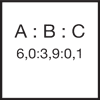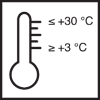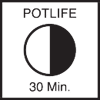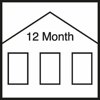Article No. 689002
Very fast reacting, transparent synthetic resin binder
Product specifications
Component A
Component B
Component C
Mixture (3C)
The stated values represent typical product characteristics and are not to be construed as binding product specifications.
Field of application
- Base layer for blinded covers
- Producing compression-resistant mortars, flow coatings
Properties
- Full hardening from +3 °C
- Can be subjected to mechanical loads
- Rapid hardening with long processing time
-
Preparation
-
Substrate requirements
The substrate must be firm, dimensionally stable, capable of bearing loads and free of loose constituents, dust, oil, grease, rubber marks and other substances that could interfere with adhesion.
The tensile strength of the surface of the substrate must be at least 1.5 N/mm² on average (smallest individual value of at least 1.0 N/mm²), and the compressive strength must be at least 25 N/mm².
The following Remmers primers must be used: QP Primer, Epoxy MT 100, Epoxy ST 100, Epoxy FAS 100.
The primer must be pore-filling in order to act as protection against alkalis.
See the current Technical Data Sheet of the product in question and the system recommendations for more detailed information.
-
-
Preparation
-
Combination container
Add the entire quantity of the hardener (component B) to the base compound (component A).
Then add the entire quantity of component C.
Mix thoroughly with a slow-speed electric mixer
(approx. 300 - 400 rpm).Mix for at least 3 minutes.
Insufficient mixing is indicated by streaks forming.
-
Application
-
Application requirements
Temperature of the air and substrate min. 0 °C to max. +30 °C.
Material temperature min. +10 °C. -
The times given are reduced at higher temperatures and increased at lower temperatures, in particular in combination with high humidity.
The material can be accelerated by the extra addition of QP CAT
(see Technical Data Sheet).
This is recommended in particular for substrate temperatures < +12 °C.
-
Working tools / cleaning
-
Toothed trowel, notched spreader, rubber scraper, epoxy roller, spiked roller, suitable mixing apparatus
-
More detailed information can be found in the Remmers Tool Programme.
Clean tools, equipment and splashed material immediately while fresh with V 101.
Take suitable protective and waste disposal measures when cleaning.
-
Storage / shelf life
-
If stored unopened in its original container in a cool, dry place and protected against frost, the product will keep for at least 12 months.
-
Usage
-
Depending on application (see Technical Data Sheet)
-
-
Application examples
-
Levelling layer/scratch coat
Apply the filled material (up to 1 : 1 parts by weight) to the primed surface and distribute with a suitable trowel. If necessary, roll over with a spiked roller.
Per mm layer thickness: approx. 0.85 kg/m² binder
and 0.85 kg/m² Selectmix 01/03 -
Synthetic resin mortar
Spread and smooth out the filled material (up to 1 : 10 parts by weight) with a smoothing trowel.
Per mm layer thickness: approx. 0.2 kg/m² binder
and 2.0 kg/m² Selectmix 0/10 -
Base layer for blinded coatings
Pour the filled material (up to 1 : 1 parts by weight) onto the prepared surface and spread using a suitable toothed trowel/toothed spreader.
The surface must then be worked through immediately using a spiked roller.
Immediately scatter an excess of suitable blinding material onto the fresh base layer.
approx. 0.85 kg/m² binder and
approx. 0.85 kg/m² Selectmix 01/03 -
Fixation layer for flake coatings
-
Top sealant
-
-
General information
-
Unless otherwise specified, all of the values and application rates given above have been determined under laboratory conditions (20 °C). Slight deviations from these values may arise if the product is worked with on site.
Use sufficiently experienced personnel to ensure that surfaces are as even as possible.
Uneven application, strong draughts and large temperature differences on the surface can result in a non-uniform surface appearance due to differences in the degree of gloss.
Abrasive mechanical loads leave traces of wear.
On account of the reaction heat that is generated in accelerated systems, the applicable coating thicknesses must be observed.
Excessive leftover quantities of material in the container will result in the development of smoke and odours if the pot life is exceeded.
As a general rule, the binder is not saponification stable.
Not suitable for permanently wet areas.
Further notes on working, system construction and maintenance of the listed products can be found in the latest Technical Data Sheets and the Remmers system recommendations.
-
-
Disposal instructions
-
Larger quantities of leftover product should be disposed of in the original containers in accordance with the applicable regulations. Completely empty, clean containers should be recycled. Do not dispose of together with household waste. Do not allow to enter the sewage system. Do not empty into drains.
-
-
Safety / regulations
-
Restricted to professional users.
Further information concerning safety during transport, storage and handling as well as on disposal and ecology can be found in the latest Safety Data Sheet.
-













